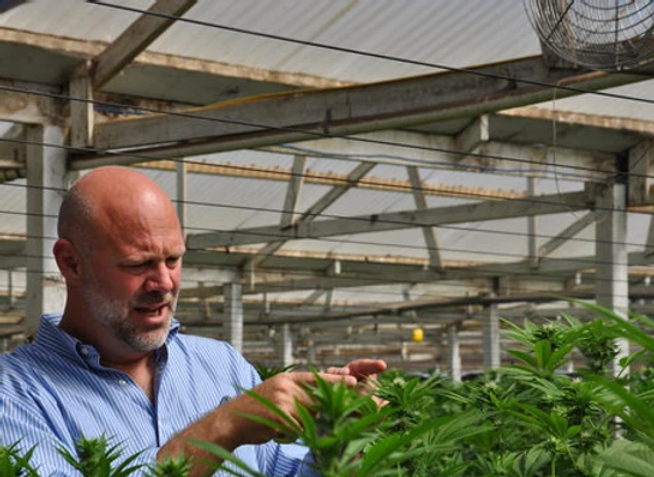
“To a hammer, everything’s a nail,” goes the saying. The problem with deep focus on a subject is that everything starts to filter through that lens. On the upside however, is that unexpected connections arise that before weren’t immediately obvious.
Such was the case at the end of June 2017 when 50 or so agriculture technology evangelists from around the world walked off the Forbes Ag Tech Summit tour bus onto Grupo Flor’s cannabis production facilities near Salinas, California. The Forbes Ag Tech Summit is an invitation only event bringing together more than 600 of the most entrepreneurial minds in agriculture to tackle the global food production crisis. The City of Salinas sponsors this summit in hopes of marking itself the epicenter of thought leadership on this critical and expanding subject.
Grupo Flor, a Salinas based cannabis enterprise of which I am a founder, chose this site because it gave attendees a unique opportunity to tour the entire cannabis wholesale supply chain at one site, from nursery and bloom, to processing and extraction, and finally packaging and distribution. Grupo Flor’s attendees, from far-off places like Japan and Poland, were about to get first hand exposure to processes that easily 90% of California legislators have never witnessed; but that’s a complaint for another blog.
“Yes, that’s correct” Mark said, in matter of fact way, wearing a surfer t-shirt and standing in front of an indoor field of stout plants, trichomes glistening, “we recycle 100% of our water; we use the same water 4-7 times before we replenish.” It was little flourishes like this that amazed the attendees, who knew not what to expect, but clearly not detailed attention to sustainability and energy conservation. I’m not exaggerating when I say that after the Grupo Flor tour, cannabis was the belle of the Forbes Ag Tech ball; however, the “why” might surprise.
You see, agriculture works on amazingly small margins, making it extremely difficult to deploy new technologies desperately needed in food production. Black market cannabis on the other hand, enjoys massive margins, but these fat margins actually retard the need for innovation. Enter regulated cannabis, threatening fat black market margins with taxes, regulations and defined competition. To my surprise, what Grupo Flor’s attendees saw was not just a crop inviting innovation, but actually a crop maybe having enough margin to encourage adoption.
And there’s the unexpected connection, cannabis offers ag tech entrepreneurs a novel opportunity to deploy innovations critical to global food crisis management. While some saw the Salinas sponsored Summit as little more than a political boondoggle, fostering creativity and unexpected results is not math, it’s risk calculus. Risk calculus is what makes California a top 6 global economy; it’s what enacted Prop 215 and it’s what undergirds our state’s new experiment with regulated cannabis. Is it too much to imagine that in some strange way, regulated cannabis can actually improve our world in ways not immediately obvious today?
